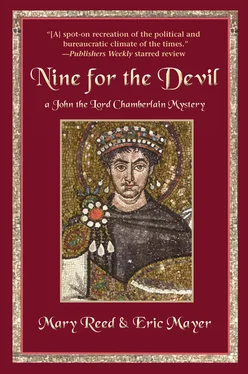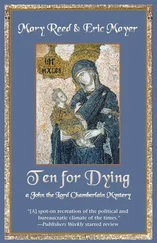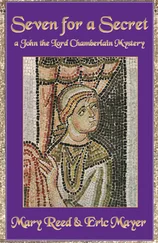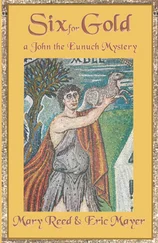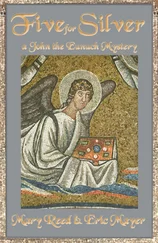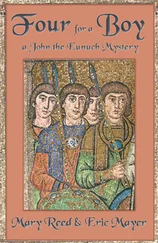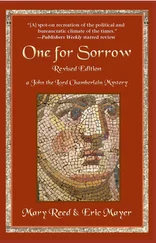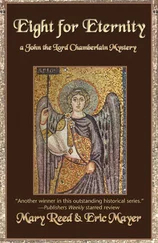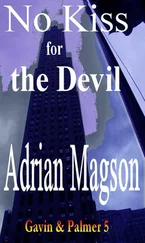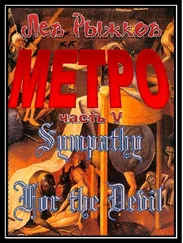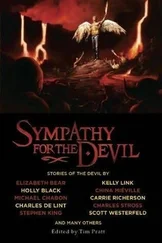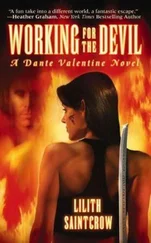Mary Reed - Nine for the Devil
Здесь есть возможность читать онлайн «Mary Reed - Nine for the Devil» весь текст электронной книги совершенно бесплатно (целиком полную версию без сокращений). В некоторых случаях можно слушать аудио, скачать через торрент в формате fb2 и присутствует краткое содержание. Год выпуска: 2012, Издательство: Poisoned Pen Press, Жанр: Исторический детектив, на английском языке. Описание произведения, (предисловие) а так же отзывы посетителей доступны на портале библиотеки ЛибКат.
- Название:Nine for the Devil
- Автор:
- Издательство:Poisoned Pen Press
- Жанр:
- Год:2012
- ISBN:нет данных
- Рейтинг книги:3 / 5. Голосов: 1
-
Избранное:Добавить в избранное
- Отзывы:
-
Ваша оценка:
- 60
- 1
- 2
- 3
- 4
- 5
Nine for the Devil: краткое содержание, описание и аннотация
Предлагаем к чтению аннотацию, описание, краткое содержание или предисловие (зависит от того, что написал сам автор книги «Nine for the Devil»). Если вы не нашли необходимую информацию о книге — напишите в комментариях, мы постараемся отыскать её.
Nine for the Devil — читать онлайн бесплатно полную книгу (весь текст) целиком
Ниже представлен текст книги, разбитый по страницам. Система сохранения места последней прочитанной страницы, позволяет с удобством читать онлайн бесплатно книгу «Nine for the Devil», без необходимости каждый раз заново искать на чём Вы остановились. Поставьте закладку, и сможете в любой момент перейти на страницу, на которой закончили чтение.
Интервал:
Закладка:
John scraped off the wax and held the flask tentatively between thumb and forefinger. What did one do with holy oil?
“Could you place a drop on my forehead, master? I know I should not be asking you, but…”
“It’s little enough to ask, Peter.”
John turned his hand and a drop of oil ran out onto the tip of his finger. There was nothing mysterious about it. It was simply a drop of lamp oil. He dabbed a bit onto Peter’s parchment dry forehead.
“If you could draw another across that one…”
John did so, uncomfortably aware he was mimicking the sign of the Christians.
He put the flask down, propped it upright against the amulet in case oil remained inside.
Peter let his eyes close. His breath whistled in and out, more regularly now.
Had he gone to sleep?
John rose quietly and went out. He didn’t care to wait.
He was half afraid Peter would next be asking that he pray for him.
Chapter Thirty-seven
When he reached the bottom of the stairs leading down from the servant’s quarters, John paused. He was exhausted. After a day of investigations, followed by a largely sleepless night and then being dragged out to his interview with Justinian, he felt as if he were carrying the dome of the Great Church on his shoulders.
He went into his bedroom and lay down to take a brief rest before deciding what to do next.
He opened his eyes to total darkness.
It took him a little while for his eyes to adjust and grope for the lamp and striker on the bedside table. Hypatia must have closed the shutters to keep out the dust stirred up in the square by the constant comings and goings of the excubitors.
What time was it? He checked the clock in the corner. The water in the basin had sunk to the eighth hour of the night.
Dawn was four hours away, even if they were the shorter hours of summer, but now John was awake he decided to take a walk.
John was familiar enough with the layout of paths and gardens to make his way around the palace grounds by the vast dome of starlight. He usually untangled problems while he walked, but tonight, though he turned his thoughts toward the various matters bedeviling him, his peregrinations did not seem to help.
Perhaps he should seek assistance elsewhere.
He left the path and plunged into a sculpture garden where ghostly white figures depicting mythological figures stood in consecutive circles, as if poised to dance with each other. Pan blew his pipes opposite a stately Minerva, Zeus stared haughtily at that troublemaker Eros, the lame god Vulcan leered at Venus, at whose narrow feet a bold and exceedingly stupid lover had left a bunch of now fading roses.
John walked on, leaving behind ordered flower beds and groves. Passing by a chapel he was misted by wind-blown spray from the fountain set beside its entrance.
As he moved further away from the more cultivated areas he took a nearly invisible track between flowering shrubbery nearly twice his height. Beyond lay an artfully designed wild area planted for the delight of those who enjoyed less formal gardens.
John had long regarded the wild area as a useful place for those inclined to plot ill will, since it boasted numerous hiding spots and was well away from the more traveled parts of the grounds.
His footfalls deadened by moss, he soon approached the low buildings housing the imperial storerooms adjacent to the kitchens.
A guard nodded to him in recognition. Perhaps the man wondered what the Lord Chamberlain was doing prowling around the palace in the middle of the night, but it was not his place to ask.
John passed through a shadowy alcove which seemed to have been constructed of stacked amphorae, went through a side door, and entered the rear portion of the kitchens. Here and there unquenched embers in long braziers sent ghostly, shifting fingers of dim orange light up plaster walls and into the rafters. The light glittered off enormous copper pans hanging from the walls like shields. It sparkled on multi-colored glass bottles crowding shelves and tables, reflected dully from myriads of earthenware jars filled with everything from spices and olives to honey and nuts.
Someone coughed nearby.
John peered through the brick archways opening into the middle portion of the kitchens and saw the vague silhouette of a man moving past tables and braziers and storage shelves.
He had only a brief glimpse of the figure before it passed through a doorway and was gone.
It was enough. He recognized Justinian.
Rumor had it the emperor never slept. That he wandered the buildings and grounds of the palace at night, often without his head.
At least the emperor had not discarded his head this time.
It had been impossible to tell whether his face had relaxed into the demonic aspect certain people swore they had glimpsed as he passed by.
John knew for a fact that the emperor kept strange hours but then, tonight at least, so did John.
At the far end of the room a shadowy figure guarded an obscure door which looked as if it might conceal a cupboard. The man, dressed in laborer’s garments, issued a challenge, “How was he born?”
“From a rock,” John responded, referring to Mithra.
The man opened the door and stood aside. There was no formal gesture of acknowledgment to one of superior rank, for in Mithra all were equal and this entrance was one of two ways to reach the hidden underground temple dedicated to John’s god.
John made his way through a network of subterranean corridors and chambers, his footsteps echoing on stone floors. Some doors stood open to reveal piles of amphorae containing wine, sacks of grain, barrels holding the pungent fish sauce known as garum, and similar comestibles stored against those occasions when one or another was late in arriving from various parts of the empire.
Penetrating to the deeper parts of the labyrinth John finally arrived at a stout wooden door.
Behind lay the mithraeum, the temple to Mithra, a long, narrow, pillared room lit by torches set in brackets on roughly dressed stone walls. Above, a ceiling encrusted with shards of pottery suggested a cave.
John descended a short flight of steps and bowed his head briefly to the altar at the far end of the room.
He held the high rank of Runner of the Sun. The honor of the post he offered to Mithra, being content to remain at that level since he could not devote the amount of time to religious matters that would be required if he rose higher, not least because in an officially Christian court Mithrans were proscribed and subject to harsh penalties if discovered.
That a temple, albeit a secret one, could be built on the very grounds of the palace was a testament to the courage and fellowship of the anonymous men who created it. He had heard its sacred statues and beautifully chiseled marble bas relief had been brought openly to the palace in large crates the cart drivers claimed held special items to decorate Theodora’s quarters and therefore had not been opened and inspected.
It was amusing to think Theodora, a supporter of monophysite heretics to the chagrin of the orthodox, had been an unwitting accomplice of pagans whose views even she would have disapproved.
Here, John hoped, he might find some inspiration in solving his task.
His gaze had, as always, been drawn to the sacred scene depicted in the bas relief behind the altar. The shifting shadows thrown by the fire burning on the altar animated its depiction of Mithra slaying the Great Bull.
As Lord of Light, Mithra was honored thrice daily by prayers offered by the Father, the priest in charge of the temple.
On this occasion, however, John had arrived as a brief ceremony was concluding with a final prayer.
“…fallen far away defending the frontier and even now ascending to thy realm of light though buried without the appropriate rites for one who loved and served thee. Grant that he be found worthy of living in thy radiance,” the Father intoned.
Читать дальшеИнтервал:
Закладка:
Похожие книги на «Nine for the Devil»
Представляем Вашему вниманию похожие книги на «Nine for the Devil» списком для выбора. Мы отобрали схожую по названию и смыслу литературу в надежде предоставить читателям больше вариантов отыскать новые, интересные, ещё непрочитанные произведения.
Обсуждение, отзывы о книге «Nine for the Devil» и просто собственные мнения читателей. Оставьте ваши комментарии, напишите, что Вы думаете о произведении, его смысле или главных героях. Укажите что конкретно понравилось, а что нет, и почему Вы так считаете.
